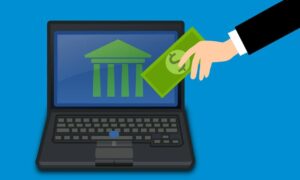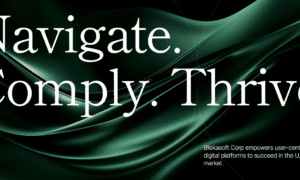Credit cards have undoubtedly revolutionized the way we manage our finances, offering unparalleled convenience and flexibility in our daily transactions. When used responsibly, credit cards can be valuable financial tools, providing rewards, building credit history, and offering a safety net in emergencies.
However, they also come with the potential to lead individuals into a debt trap if not managed wisely. In this comprehensive guide, we will explore essential strategies and best practices to use credit cards responsibly, avoid accumulating debt, and maintain a healthy financial outlook.
1. Understanding the Temptation of Credit:
Credit cards offer instant access to funds, tempting individuals to make impulsive purchases they may not be able to afford in cash. It is essential to recognize that the credit limit on a card is not free money but a line of credit that needs to be repaid eventually. Before making a purchase, ask yourself if it aligns with your budget and if you can afford to pay the balance in full when the statement arrives.
2. Create a Budget and Stick to It:
One of the most effective ways to use credit cards responsibly is to establish a comprehensive budget. Analyze your income and expenses, categorize them, and allocate a portion for discretionary spending. With a budget in place, you can make informed decisions about how much you can afford to charge to your credit card each month without risking overspending.
3. Pay Your Balance in Full and On Time:
The golden rule of responsible credit card usage is to pay your balance in full and on time every month. By doing so, you avoid interest charges and late payment fees, which can quickly escalate into a debt burden. Set up reminders or automatic payments to ensure you never miss a due date.
4. Monitor Your Credit Card Spending:
Regularly monitor your credit card transactions and review your monthly statements. This not only helps you keep track of your expenses but also enables you to identify any unauthorized or fraudulent charges promptly. If you notice any discrepancies, contact your card issuer immediately to report the issue.
5. Keep Credit Utilization Low:
Credit utilization refers to the percentage of your credit limit that you are currently using. High credit utilization can negatively impact your credit score. To maintain a healthy credit score and financial well-being, aim to keep your credit utilization below 30% of your available credit limit. For example, if your credit limit is $1,000, try not to carry a balance higher than $300.
6. Avoid Using Credit Cards for Cash Advances:
Cash advances on credit cards typically come with higher interest rates and additional fees. It’s best to avoid using your credit card for cash advances, as these can quickly accumulate interest, making it difficult to pay off the balance.
7. Resist Minimum Payments:
Making only the minimum payment required by your credit card issuer may seem like a convenient option, but it can lead to a debt cycle that is challenging to escape. Minimum payments primarily cover interest charges, leaving the principal balance largely untouched. Paying more than the minimum amount each month helps you pay down the debt faster and reduces overall interest expenses.
8. Think Twice Before Opening Multiple Credit Card Accounts:
Having multiple credit cards may offer the allure of increased credit limits and various rewards, but it can also lead to overspending and difficulty managing multiple payments. Stick to one or two credit cards that meet your needs, and be mindful of your ability to manage the available credit responsibly.
9. Avoid Retail Store Credit Cards Impulse:
Retail store credit cards often offer discounts on purchases, making them tempting at the checkout counter. However, they may come with higher interest rates and limited use compared to regular credit cards. Consider the long-term implications and your spending habits before signing up for store credit cards.
10. Educate Yourself on Credit Card Terms and Conditions:
Thoroughly read and understand the terms and conditions of your credit card agreement. Be aware of interest rates, fees, grace periods, and any special offers or rewards programs. Being informed will help you make better financial decisions and avoid unexpected charges.
11. Prepare for Emergencies:
While credit cards can be helpful in emergencies, it’s wise to have a separate emergency savings fund. Having a financial safety net will reduce the temptation to rely solely on credit cards during challenging times.
12. Seek Professional Help If Needed:
If you find yourself struggling with credit card debt or managing your finances, don’t hesitate to seek professional financial advice. Credit counseling services can provide guidance and strategies to help you get back on track.
Credit cards are powerful financial tools that can simplify transactions and offer various benefits when used responsibly. To avoid falling into the debt trap, it’s essential to develop sound financial habits, such as creating a budget, paying balances in full and on time, and monitoring your credit card spending. By understanding the potential risks and taking proactive measures, you can enjoy the convenience and rewards of credit cards while maintaining financial stability and a positive credit history. Remember that financial responsibility is key to a secure and successful financial future.



































